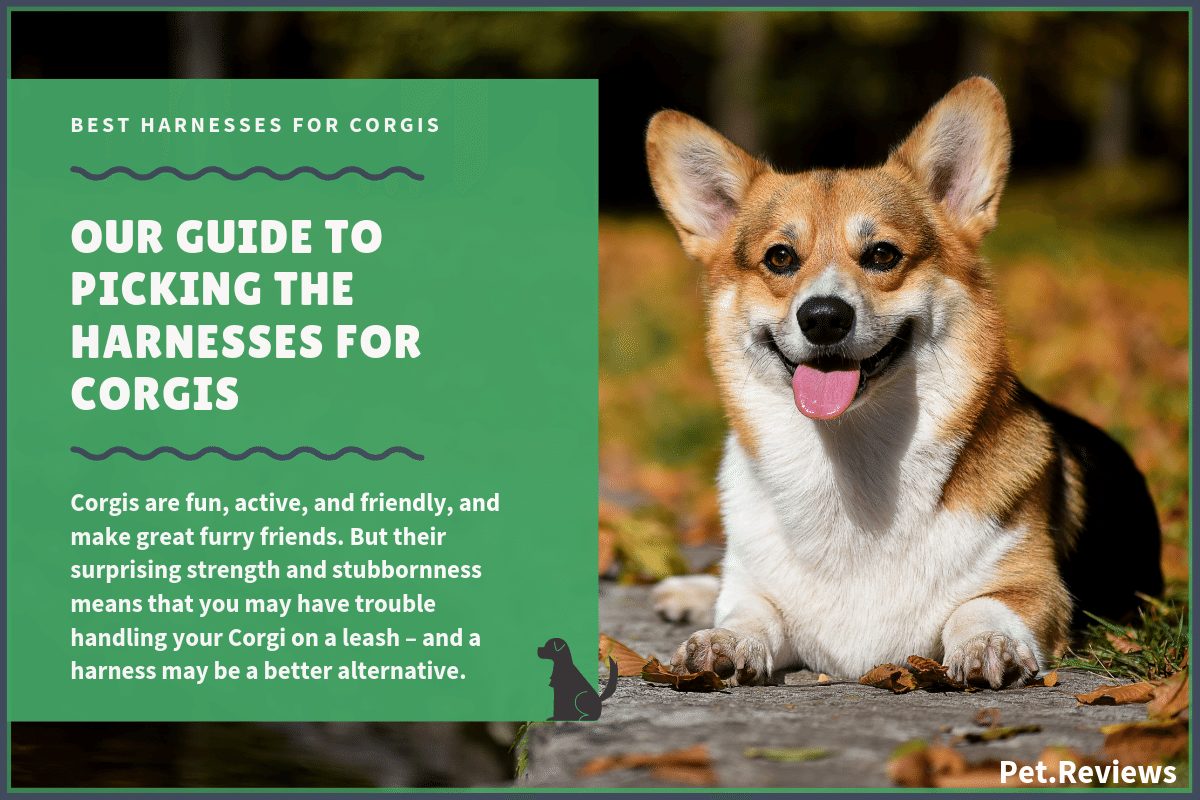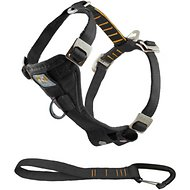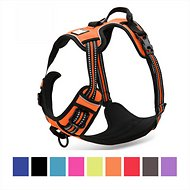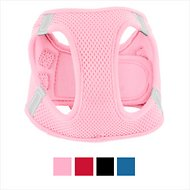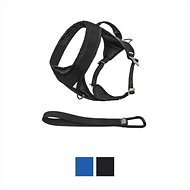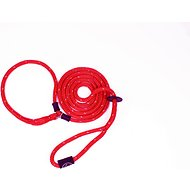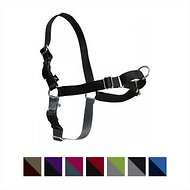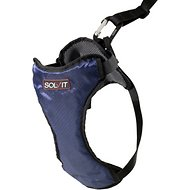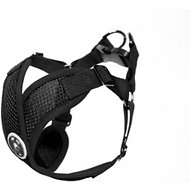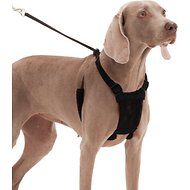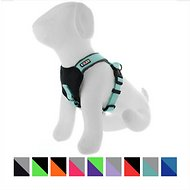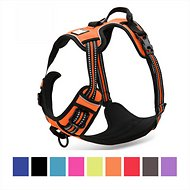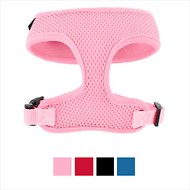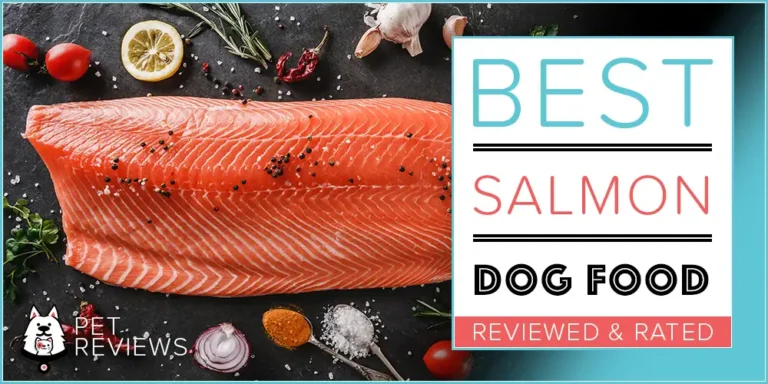10 Best Harnesses for Corgis: Our Walking, Hiking & No Pull Picks
Quick Guide
Corgis are fun, active, and friendly, and make great furry friends. But their surprising strength and stubbornness means that you may have trouble handling your Corgi on a leash – and a harness may be a better alternative.
Not sure where to start when it comes to picking out a harness for your Corgi? We’re here to help! In this quick guide, we’ll explain some of the different popular harness types and materials, discuss the features you should look for in a Corgi harness, and provide you with some of our top picks – as well as answers to a few harness FAQs.
Ready to get started, and shop for a high-quality harness for your Corgi? Read on, and learn everything that you need to know to start shopping right away.
What is the Best Harness for Corgis?
- Kurgo Tru-Fit Smart Harness with Steel Nesting Buckles Enhanced Strength
- Chai’s Choice 3M Reflective Dog Harness
- Frisco Small & Medium Breeds Soft Mesh Dog Harness – Most Affordable & Popular
- Kurgo Go-Tech Adventure Dog Harness with Seatbelt Loop
- Harness Lead Dog Harness
- PetSafe Easy Walk Dog Harness
- Solvit Deluxe Car Safety Dog Harness
- Gooby Comfort X Step-In Mesh Dog Harness
- Sporn Non-Pull Mesh Dog Harness
- Pawtitas Reflective Padded Dog Harness
Popular Types Of Corgi Harnesses
Wondering what the most popular types of harnesses are for Corgis? There are dozens of different types of harnesses on the market, but the following are the most common.
- No-pull harnesses – Corgis can be very stubborn and pull hard, so a no-pull harness which uses a chest ring to move your dog to your side when it pulls is a good investment. Other types of no-pull harnesses gently tighten around your dog when it pulls, releasing when it stops pulling. Both types of harness are useful for discouraging excessive pulling.
- Car harnesses – Corgis are energetic, and you don’t want your dog moving around too much in the car. There are purpose-built car harnesses available, and most harnesses with a handle can also be clipped into a seat belt for safe, distraction-free driving.
- Hiking harnesses – Corgis love adventuring and were originally bred as working dogs, so they are great hiking partners. Hiking harnesses usually have a handle, multiple leash attachment points, and a lightweight yet padded design to keep your dog comfortable during long hikes and walks. Some also include reflective trim and features like storage pockets.
- Mesh vest harnesses – Mesh vest harnesses are easy to put on your dog, and are very breathable and comfortable, making them a good choice for smaller breeds with thick coats, like Corgis.
- Harness leads – Harness leads use a one-piece lead that is wrapped around your dog securely using rubber stops and metal clips, and they are very hard to chew through or escape. They also can be adjusted to fit dogs of any size, including Corgis, which have long, stout bodies that are sometimes hard to fit into a standard harness.
Different Corgi Harness Materials
Despite the diversity of different Corgi harnesses available, most harnesses are made out of one or a combination of the following common materials.
- Nylon – Nylon is usually the top choice for dog harnesses because it is breathable, easy to clean, water-resistant, strong, and relatively soft and stretchy. It’s used in the majority of dog harnesses.
- Polyester – Polyester is the second most common type of harness material, and is a good alternative to nylon, as it shares most of the same properties. It is usually less strong, but is also more breathable and hydrophobic, which can be advantageous in some harnesses.
- Cotton – Cotton is not as strong or breathable as nylon or polyester, but it is a natural and organic fabric, so it may be a better choice if your Corgi has sensitive skin, or you want to avoid synthetic materials.
- Mesh – Mesh can be made of nylon, polyester or cotton. This type of material is very breathable and provides excellent ventilation, and is usually quite stretchy. It may be used on its own, or as padding or backing.
- Leather – Leather is not as common in dog harnesses today as it used to be, due to its heavy weight and high cost. It also takes quite a bit of upkeep to keep a leather harness in good condition. Still, leather is extremely durable and still used in some high-quality harnesses.
- Neoprene – Neoprene is a type of synthetic rubber that is extremely soft, making it a great choice for padding on dog harnesses. It is usually used alongside polyester or nylon to provide additional softness and comfort in dog harnesses.
These materials are all great for dog harnesses, and most harnesses use one or more of them, as well as plastic and/or metal hardware.
6 Key Components Of A Harness For A Corgi
Wondering what you should be looking for when shopping for a Corgi harness? Here are a few attributes and features you should be on the lookout for while selecting a harness for your dog.
- Plenty of back padding – Corgis, like many smaller breeds which are close to the ground, have a tendency toward developing intervertebral disk disease. Hip dysplasia is also a common issue. Buying a harness with plentiful padding will help ensure your Corgi gets the support it needs to reduce its risk of developing these issues.
- Proper weight distribution – Beyond simply having enough padding, a great Corgi harness will balance weight distribution around the back, chest, neck, and belly evenly, avoiding excessive strain in any single area.
- Easy adjustability – Corgis have uniquely stout bodies, so plenty of adjustability is a must-have to ensure that your harness fits your dog perfectly, and doesn’t slip or slide around.
- No-pull features – Corgis are surprisingly powerful pullers, thanks to their strong bodies, low center of gravity, and tendency to be quite stubborn. Because of this, a no-pull harness with a front ring or a harness that tightens when your dog pulls is a good investment.
- Reflective trim – Reflective material makes it easier for others to see you and your dog, particularly on early morning and late night walks in heavily-trafficked areas. Given the small stature of Corgis, we highly recommend a reflective harness.
- Breathability – Corgis have thick double coats, and are prone to overheating in hot weather. This is particularly true when your Corgi is wearing a thick harness. For this reason, we recommend purchasing a harness that is made of mesh, or is lightweight enough that it won’t restrict your Corgi, or cause it to overheat.
If you can find a harness that meets most or all of these requirements, you’re sure to make the right decision for your Corgi.
Our Picks For The Best Harness For A Corgi
Ready to start shopping? Here are a few of our top picks for the best Corgi harnesses. Check them out, and see if one of these may be right for your dog.
| Our 2024 Picks: Best Harness for a Corgi | |||
Kurgo Tru-Fit Smart Harness With Steel Nesting Buckles Enhanced Strength
|
CHECK PRICE | ||
Chai’s Choice 3M Reflective Dog Harness
|
CHECK PRICE | ||
Frisco Small Breed Soft Vest Dog Harness
|
CHECK PRICE | ||
Kurgo Go-Tech Adventure Dog Harness With Seatbelt Loop
|
CHECK PRICE | ||
Harness Lead Dog Harness
|
CHECK PRICE | ||
PetSafe Easy Walk Dog Harness
|
CHECK PRICE | ||
Solvit Deluxe Car Safety Dog Harness
|
CHECK PRICE | ||
Gooby Comfort X Step-In Mesh Dog Harness
|
CHECK PRICE | ||
Sporn Non-Pull Mesh Dog Harness
|
CHECK PRICE | ||
Pawtitas Reflective Padded Dog Harness
|
CHECK PRICE | ||
Kurgo Tru-Fit Smart Harness with Steel Nesting Buckles Enhanced Strength
Key features:
- Strong steel nesting buckles
- Harness-inspired design with heavy-duty nylon straps
- Crash-test rated up to 75 lbs, includes carabiner and strap
- Includes no-pull front ring and rear back lead attachment
Best Overall: This harness by Kurgo is our top pick for the best overall Corgi harness. It’s extremely durable thanks to its heavy-duty nylon straps and all-metal hardware, and the nesting steel buckles are also easy to adjust, allowing you to get the perfect fit for your Corgi. Not only that, but it also has a front no-pull ring which helps prevent pulling, and a rear lead attachment for use as a traditional harness. There is no back padding, but most pressure is placed on the front pad, which is made of a soft material.
Pros:
- Extremely durable
- Five adjustment points
- Padded front piece
Cons:
- No back padding
- Relatively heavy
- Straps are stiff
Chai’s Choice 3M Reflective Dog Harness
Key features:
- Built with plenty of padding
- 3M reflective material or low-light safety
- Built-in handle
- Includes no-pull front ring
Runner Up: This harness from Chai’s Choice is our runner-up, and maybe a better option for you if you need a more lightweight harness with more padding. The back and chest/belly are both heavily padded with a mesh material, providing more comfort for your pup. The design also uses buckles to help you put on and take off the harness more easily, and incorporates 3M reflective material for more safety in low-light conditions. It also features four adjustment points, and both a front no-pull ring and a rear ring for lead attachment.
Pros:
- Lightweight and breathable
- Plenty of padding on the back and chest
- Reflective material for enhanced safety
Cons:
- Neck is difficult to adjust
- Not rated for crash safety
- Runs small
Frisco Small & Medium Breeds Soft Mesh Dog Harness
Key features:
- Ventilated polyester mesh
- Provides plenty of stretch
- Buckles and straps are adjustable
- Over-the-head design
Most Affordable Pick: If you need an affordable and comfortable harness for your Corgi, this dog harness from Frisco is a great option, and provides plenty of ventilation, padding, and comfort for your dog. It uses a front mesh “collar” along with two strong straps that buckle in the back. The mesh is soft, stretchy and lightweight, and helps spread the pressure of pulling across the chest and belly. The dual-strap design is adjustable and makes it easy to put on and take off, while a strong rear metal ring provides a lead attachment point.
Pros:
- Lightweight and breathable with plenty of ventilation
- Easy to put on and take off
- Has a small rear strap/handle for better control
Cons:
- Lacks no-pull ring
- Neck is not adjustable
- Straps are not padded
Kurgo Go-Tech Adventure Dog Harness with Seatbelt Loop
Key features:
- Ventilated padding for comfort
- Strong nylon straps
- Durable metal hardware and buckles
- Includes no-pull front ring
Best Hiking Harness: Corgis were originally bred as working dogs, to herd sheep and cattle. Despite their small size, they are extremely energetic, and great hiking companions. This Kurgo dog harness is ideal for your next hiking excursion. It features a padded neck, chest and belly section, reflective accents, a front, and rear lead attachment point, and a rear handle. In addition, it comes with a carabiner and strap that let you use it in the car, and attach it to a seat belt.
Pros:
- Comes with accessories for use as a car harness
- Strong steel hardware
- Four-way adjustability
Cons:
- Not crash-test rated
- Neck cannot be adjusted
- Not easy to put on and take off of your dog
Harness Lead Dog Harness
Key features:
- Strong nylon rope
- All-in-one lead and harness design
- Helps reduce pulling
- Easy to clean, wash and dry
No Escape Harness Lead: If your Corgi tends to try to escape from harnesses – or you have had a hard time finding a harness that fits right – a harness lead like this product may be right for you. Harness leads use an all-in-one design that wraps tightly around your dog and can be adjusted to fit Corgis of any size. In addition, this harness lead uses a design that gently tightens when your dog pulls, which helps discourage this behavior. It’s extremely strong and very comfortable.
Pros:
- Escape-proof when properly tightened
- Rated for 3,700 lbs of tensile strength
- Can fit a dog of any size
Cons:
- Initial adjustment has a bit of a learning curve
- Not ideal for all-day wear
- Minimal padding
PetSafe Easy Walk Dog Harness
Key features:
- Simple, lightweight design
- Wide range of sizes
- 7 color combinations
- 4 size adjustment points
- Pressure applied to chest strap
Best Walking Harness – If you need a simple walking harness for your Corgi that you can put on and take off in seconds, this is a great option for a day-to-day harness. A simple three-strap design with buckles makes this harness a breeze to put on and take off, and four adjustment points ensure you get the perfect fit, while the strong nylon straps keep your dog in place, and ensure its safety. A front no-pull ring helps keep your dog under control, and the metal hardware ensures the straps don’t slip.
Pros:
- Easy to put on and take off in seconds
- Lightweight and breathable
- Simple adjustment
Cons:
- Not ideal for extremely strong pullers
- No rear lead attachment point
- Minimal padding
4 More Top Rated Harnesses For Corgis
If you’re not sure that one of the above harnesses is right for you, we’ve put together a list of a few other top-rated harnesses that may be a good choice for your Corgi. They didn’t quite make our list of top picks but are still great products that may be right for your dog.
Solvit Deluxe Car Safety Dog Harness
If you want a purpose-built dog harness for use in the car, this product from Solvit is ideal. It’s crash-test rated and can stand up to 3,000 lbs of tensile strength, and has been made with a comfortable, ventilated nylon material that will keep your dog feeling cool and comfortable in the car. The rear attachment point can also be used with a lead to walk your dog and take it outside once you’ve reached your destination.
Gooby Comfort X Step-In Mesh Dog Harness
Some dogs do not like being put into “over-the-head” harnesses. Step-in harnesses, like this product from Gooby, simply slip up over your dog from under their legs. Then, the strong plastic buckle secures it to your pup. This type of harness is very easy to put on and take off. However, you must make sure you adjust the chest and belly straps properly, or your dog may be able to slip out of the harness. This harness also lacks a front ring, so it’s not a good no-pull harness.
Sporn Non-Pull Mesh Dog Harness
This is a great product for dogs that tend to get too hot in more bulky harnesses. If you walk your Corgi in the summer heat, for example, the ventilated and minimalist design of this Sporn harness makes it a good option. It uses a stretchy, breathable mesh fabric chest piece, and features padded chest and belly straps that attach to a strong metal ring.
Pawtitas Reflective Padded Dog Harness
This product from Pawtitas is great if your Corgi has joint or back problems. It uses soft polyester and neoprene rubber to pad the harness and straps, and also features a reflective design that helps keep you and your dog safe in low-light conditions. It also features 3 adjustment points and a strong lead attachment in the rear of the harness, as well as durable plastic buckles which make it easy to put on and take off of your dog.
5 Frequently-Asked Questions About Harnesses For Corgis
Got questions about your Corgi, and what harness may be right for it? We’ve got answers to some of the most frequently asked questions about Corgi harnesses below!
- What size harness should I get for my Corgi? – Corgis usually weigh between 20-30 lbs, so a small or medium harness is usually the right size. However, it should be noted that each manufacturer has different sizing guidelines. For this reason, it’s always best to measure your dog. Measure its neck at the widest point, and measure its chest at the broadest point of the ribcage, using a flexible tape. Then, you can use these measurements to pick out a properly-sized harness. If you’re between sizes, we usually recommend going a size up – it’s easier to tighten a looser harness for the proper fit.
- Are harnesses more comfortable than dog collars? – Yes, especially if your dog tends to pull. A collar can put excessive strain on the neck and airway, and harm your Corgi. Harnesses spread out this pressure across the neck, back, belly and chest, which makes them much more comfortable.
- How tight should my Corgi’s harness be? – As a rule, your dog’s harness should be loose enough that you can fit two fingers into the strap. If it’s too tight, it could cut into the dog’s flesh or restrict its movement. Too loose, and it will move around and could cause abrasion or irritation – or even allow your dog to escape.
- Should I leash train my Corgi puppy before using a harness? – Yes. If you have a puppy, for example, most dog trainers recommend leash training it before you start to use a harness. This is because using a harness exclusively from a young age can encourage pulling. When wearing a leash, your dog is less likely to pull hard because its neck will be constricted. But with a harness, this is not as much of an issue. Because of this, exclusively using a harness on your Corgi before it’s leash trained is not a good idea. You should leash train your dog first, then move on to using a harness.
- Will a harness irritate my Corgi’s skin? – In most cases, no. Corgis have thick, double coats, so the harness you buy likely won’t irritate its skin. If you do notice any skin irritation, you should make sure your harness is adjusted properly – and consider visiting your veterinarian to ensure your dog doesn’t have a skin condition.
We hope the answers to these questions will be helpful as you shop for a harness for your Corgi! If you have more questions or concerns about picking a harness for your dog, we recommend consulting with a dog trainer or behaviorist.
Conclusion
We hope that the above shopping guide has been comprehensive enough to help you choose the right harness for your Corgi. Every dog is different, so make sure to consider your dog’s unique needs when you’re shopping for a harness.
Thanks for reading. Take another look at our top picks now, think about what kind of harness may be right for your Corgi, and start shopping right away – you’re sure to find a harness that your furry friend will love.

